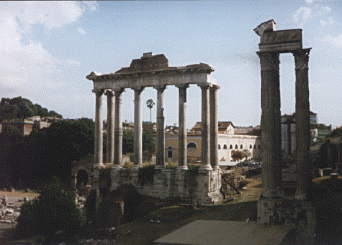
Fall 1998
Instructor: Robert W. Cape, Jr.
 |
Classics 24/54:
Fall 1998
Instructor: Robert W. Cape, Jr. |
Robert W. Cape, Jr., Associate Professor of Classics Classical & Modern Languages 900 N. Grand Avenue, Suite 61653 Sherman, TX 75090-4040 phone: (903) 813-2241 fax: (903) 813-2011 | 
|